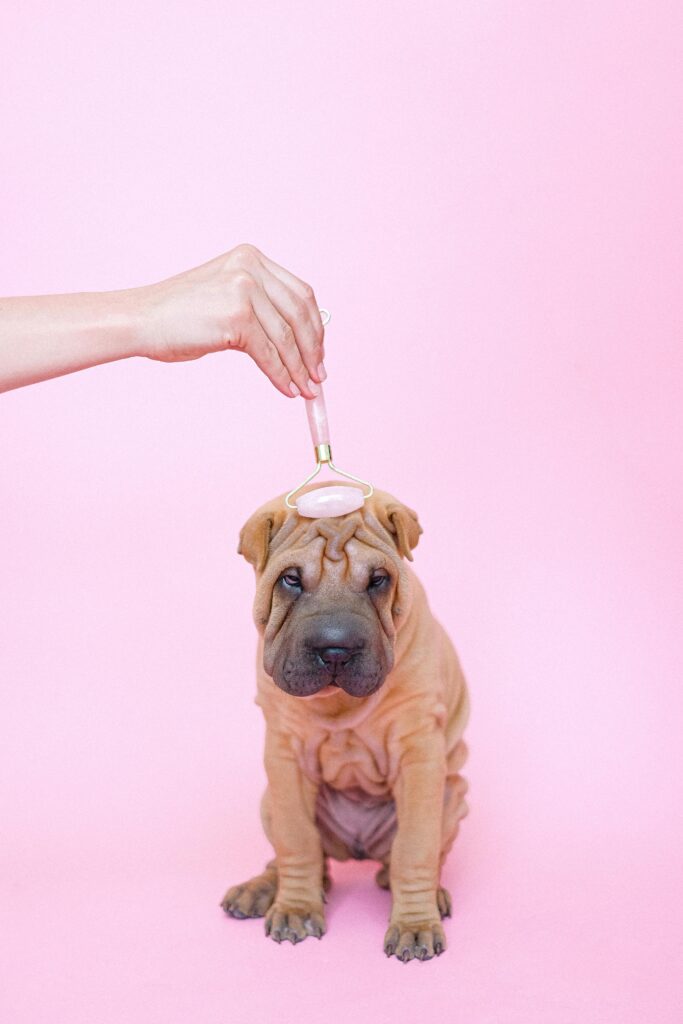Why Is My Dog Scratching So Much?
New Articles Why Is My Dog Scratching So Much? Dog Food Ingredients to Avoid for Allergies August 12, 2025 Dog Allegry, Dog Food 9:10 pm If your dog keeps scratching all the time, it may be a sign of a problem. It is one of the most common concerns for dog owners and a top reason for vet visits. Persistent itching is more than just irritating for your dog. It can indicate allergies, parasites, infections, or other health problems. Left untreated, scratching can lead to open wounds, skin infections, and stress for both you and your pet. The good news is that most causes are treatable once identified, and with the right approach you can restore your dog’s comfort and happiness. In this article, we’ll cover: Common causes of excessive dog scratching Seasonal allergy triggers How to prevent itching Safe home remedies When it’s time to see the vet FAQ for quick answers Why Is My Dog Scratching So Much? A dog that’s constantly scratching, chewing, or licking is often trying to tell you something is wrong. Occasional itching is completely normal — after all, dogs explore the world with their noses, paws, and fur, which exposes them to dust, pollen, and tiny irritants every day. But when the scratching becomes constant or intense, it’s often a sign that something more serious is going on. Excessive itching, also called pruritus, is one of the most common reasons dog owners visit the vet. It can be caused by a variety of issues — from fleas and environmental allergens to skin infections, food sensitivities, hormonal changes, or even stress. In some cases, a single flea bite can trigger days of discomfort, while in others, a hidden allergy can cause year-round symptoms. Left untreated, persistent scratching can do more than just annoy your dog. It can break the skin, leading to painful hot spots, bacterial or yeast infections, and hair loss. Over time, the constant irritation can affect your dog’s sleep, energy levels, and overall quality of life — and may even cause behavioral changes such as irritability or aggression. The good news is that most causes of itching are treatable once identified. With a little detective work, you and your veterinarian can pinpoint the root cause and create a plan that relieves your dog’s discomfort and prevents future flare-ups. In this guide, we’ll explore the most common reasons dogs scratch excessively, how to tell the difference between mild and serious cases, and what you can do to keep your dog’s skin healthy and itch-free. Whether it’s a seasonal pollen problem, an unwelcome parasite, or an overlooked skin condition, understanding the “why” is the first step toward giving your dog lasting relief. Common Causes of Excessive Dog Scratching Fleas and Parasites Even a single flea bite can cause intense itching, especially in dogs allergic to flea saliva. This condition, called flea allergy dermatitis, can cause days of discomfort after just one bite. Fleas tend to hide in warm, protected areas such as the base of the tail, belly, armpits, and neck. Signs: Red bumps, hair loss, constant scratching or biting, and the presence of flea dirt (tiny black specks in the fur). Other parasites like mites (mange), ticks, and lice can also cause severe itching. Mange mites can lead to crusty skin and hair loss, ticks may transmit dangerous diseases, and lice can spread quickly between dogs. Example: Bella, a 4-year-old Beagle, scratched her ears raw after catching ear mites from playing with a neighbor’s outdoor cat. Regular parasite prevention and routine checks kept her itch-free afterward. Allergies Environmental Allergies Triggers: Pollen, mold spores, dust mites, and certain grasses.Signs: Itchy paws, red ears, inflamed belly, watery eyes, frequent licking after walks.Management: Wipe your dog’s paws and coat after walks. In severe cases, your vet may recommend antihistamines or allergy shots.Example 1: Max, a Labrador, scratched every spring due to pollen. Antihistamines plus daily paw cleaning reduced his symptoms.Example 2: Sophie, a Cocker Spaniel, developed constant red paws in summer from grass pollen. Switching walk times to late evenings and rinsing her paws after walks solved the problem. Food Allergies Common triggers: Beef, chicken, dairy, wheat, soy, eggs.Signs: Year-round itching, chronic ear infections, digestive upset.Management: A vet-supervised elimination diet; once the allergen is identified, it must be avoided completely.Example 1: Bruno, a German Shepherd, stopped developing hot spots after chicken was removed from his diet.Example 2: Daisy, a French Bulldog, overcame diarrhea and itchy skin after switching to a fish-based hypoallergenic diet. Contact Allergies Causes: Shampoos, detergents, cleaning products, synthetic fabrics, bedding.Signs: Localized redness or rash in areas that touch the allergen.Management: Remove the trigger; use hypoallergenic bedding and pet-safe cleaners.Example 1: Bella, a small Terrier, developed red bumps on her belly from lying on a blanket washed with scented detergent. Switching to fragrance-free detergent resolved the issue. Dry Skin Common in winter due to low humidity, but can also result from poor nutrition, dehydration, or frequent bathing with harsh shampoos.Signs: Flaky dandruff, dull coat, mild redness.Care: Add omega-3s (fish oil, flaxseed) to the diet, use a humidifier, choose moisturizing dog shampoos, and avoid overbathing.Example 1: Lucy, a Golden Retriever, saw her winter dandruff disappear after salmon oil was added to her meals.Example 2: Milo, a short-haired Dachshund, developed dry, flaky skin from daily baths. Reducing baths and using a moisturizing shampoo restored his coat. Skin Infections Scratching can break the skin barrier, allowing bacteria or yeast to grow. Dogs with skin folds or moist areas are at higher risk.Signs: Redness, swelling, hot spots, foul odor, greasy coat.Treatment: Vet-prescribed medicated shampoos, antifungals, or antibiotics. Keep skin folds clean and dry.Example 1: Rocky, a French Bulldog, cleared a yeast infection in his folds after targeted antifungal care.Example 2: Lola, a Shih Tzu, had repeated bacterial infections under her tail due to trapped moisture. Daily cleaning and a vet-prescribed ointment solved the problem. Hormonal Imbalances Conditions such as hypothyroidism or Cushing’s disease can impact skin health and hair growth.Signs: Symmetrical
Dog Food Ingredients to Avoid for Allergies
August 12, 2025 9:10 pm Does your dog seem itchy all the time or get an upset tummy after meals? As a concerned dog parent, you might be wondering if something in their food is causing those problems. Dog food allergies are more common than you might think, and figuring them out can feel overwhelming. In this friendly guide, we’ll walk through which dog food ingredients to avoid for allergies, how those ingredients cause reactions, and what you can do to keep your pup happy and allergy-free. Consider this a chat with a friend who’s learned a lot about dog allergies – by the end, you’ll know how to spot allergy triggers, read food labels like a pro, and choose safer foods for your furry friend. Ready? Okay, let’s go! Dog Food Ingredients to Avoid for Allergies Understanding Dog Food Allergies What exactly is a dog food allergy? A dog food allergy happens when your dog’s immune system mistakenly attacks a normal ingredient, usually a protein, as if it were dangerous. This immune reaction releases chemicals like histamine, which cause symptoms such as itching, stomach upset, or ear infections. 💡 Example: Your dog’s immune system is like a guard dog. With an allergy, it starts barking at something harmless like chicken or beef, thinking it’s an intruder. Food Allergy vs. Food Intolerance Food allergies: Involve the immune system and often cause skin issues alongside digestive problems. Food intolerances: Usually just affect digestion and don’t trigger an immune response. Either way, the solution is often the same: avoid the offending ingredient. Signs of Dog Food Allergies Look out for these signs of dog food allergy: Persistent itching and scratching (especially paws, belly, face, ears, rear end) Frequent ear infections Hot spots, rashes, or hair loss Digestive problems (diarrhea, vomiting, gas) Anal gland issues Real-life example:Max, a 4-year-old Labrador, had chronic ear infections and hot spots. His owner switched him from chicken-based kibble to a salmon and sweet potato diet. Within weeks, his skin cleared, and the ear infections stopped. The culprit? Chicken allergy. Common Dog Food Allergens The following are the most common dog food ingredients to avoid for allergies: 1. Beef The #1 dog food allergen (about 34% of cases). Causes skin irritation, ear infections, and digestive upset. 2. Chicken A frequent trigger (about 15% of cases). Often cross-reacts with turkey and other poultry. 3. Dairy Causes itchiness and digestive trouble. Found as milk, cheese, whey, casein. 4. Wheat Some dogs react to the gluten protein in wheat. Can cause itchy skin or soft stools. 5. Soy Plant protein that may cause itching, ear problems, and stomach upset. 6. Corn Less common, but some dogs react to it. Look for skin or digestive symptoms. 7. Eggs Allergic reactions usually to egg whites. Found as dried egg product in many foods. 8. Lamb Can cause allergies, especially in beef-sensitive dogs. 9. Artificial Additives Preservatives, colors, and flavors can cause intolerance reactions. Best to avoid. Reading Dog Food Labels Like a Pro When checking dog food: Check the first 5 ingredients — they make up most of the food. Learn allergen aliases (e.g., dairy might appear as “whey” or “casein”). Avoid vague terms like “meat meal” without specifying the animal. Check treats and supplements too — they often hide allergens. Choosing Allergy-Friendly Dog Food Options for hypoallergenic dog food include: Limited Ingredient Diets (LID) – fewer components, easier to identify allergens. Novel Protein Diets – proteins your dog hasn’t eaten before (duck, venison, kangaroo). Hydrolyzed Protein Diets – proteins broken into small fragments so the immune system won’t react. Fresh or Home-Cooked Diets – full control over ingredients, best done with vet guidance. Preventing Future Allergies Rotate proteins periodically to reduce risk. Choose high-quality, natural foods without unnecessary additives. Support gut health with probiotics and skin health with omega-3s. Stick to measured meals, not free-feeding. When to See the Vet Consult a vet if your dog has: Ongoing itchiness or digestive issues Frequent ear or skin infections Symptoms not improving with diet change Your vet may recommend an elimination diet — the gold standard for diagnosing food allergies. Key Takeaways The most common dog food allergens are beef, chicken, dairy, and wheat. Learn to read dog food labels to spot hidden allergens. Hypoallergenic diets can dramatically improve your dog’s comfort. Managing allergies is about consistent vigilance and informed choices. Suggested Links American Kennel Club – Dog Food Allergies Overview PetMD – Allergies in Dogs: Symptoms, Causes, and Treatment VCA Hospitals – Food Allergies in Dogs Sale Add to cart Rated 0 out of 5 Adopt Smart-Sensitive Breeds A practical guide to the 10 most allergy-prone dog breeds. Learn causes, solutions, and real ways to care for sensitive dogs before and after adoption. € 6,99 Original price was: € 6,99.€ 4,99Current price is: € 4,99. Add to cart View Product Thinking about getting your first dog? Be prepared before adopting your first best friend! We’ve put together the most important info you should know — plus the latest facts on today’s most popular breeds! Breeds What do you know about the food you’re feeding your dog? Let’s break down what’s really in your dog’s bowl — so you can choose better. Studies show that many commercial dog foods contain allergens, fillers, and low-quality proteins. Even “premium” labels can be misleading. Dog Food Is Your Dog’s Itching More Than Just a Skin Problem? Learn what ingredients might be triggering it. Most chronic itching, ear infections, or paw licking are signs of food allergies — not dirty fur or bad habits. Dog Allergies Edit Template No Content Available All Posts Blog Dog Allegry Dog Breeds Dog Food Fruits Home Care Mangement People Professional Elementor #1199 12.08.2025/No Comments Does your dog seem itchy all the time or get an upset tummy after meals? As a concerned dog parent,… Read More







